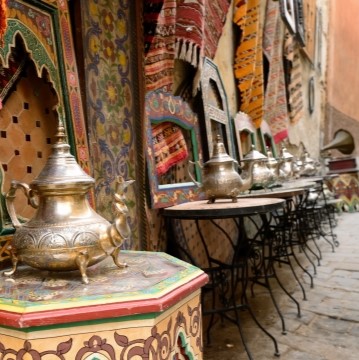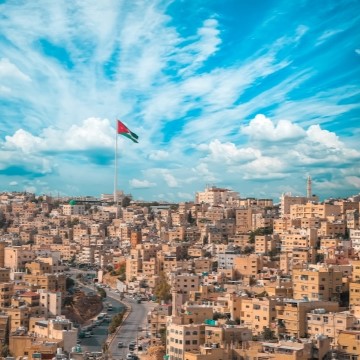Undergraduate Arabic Studies
Study the Arabic language and culture to become a global professional.
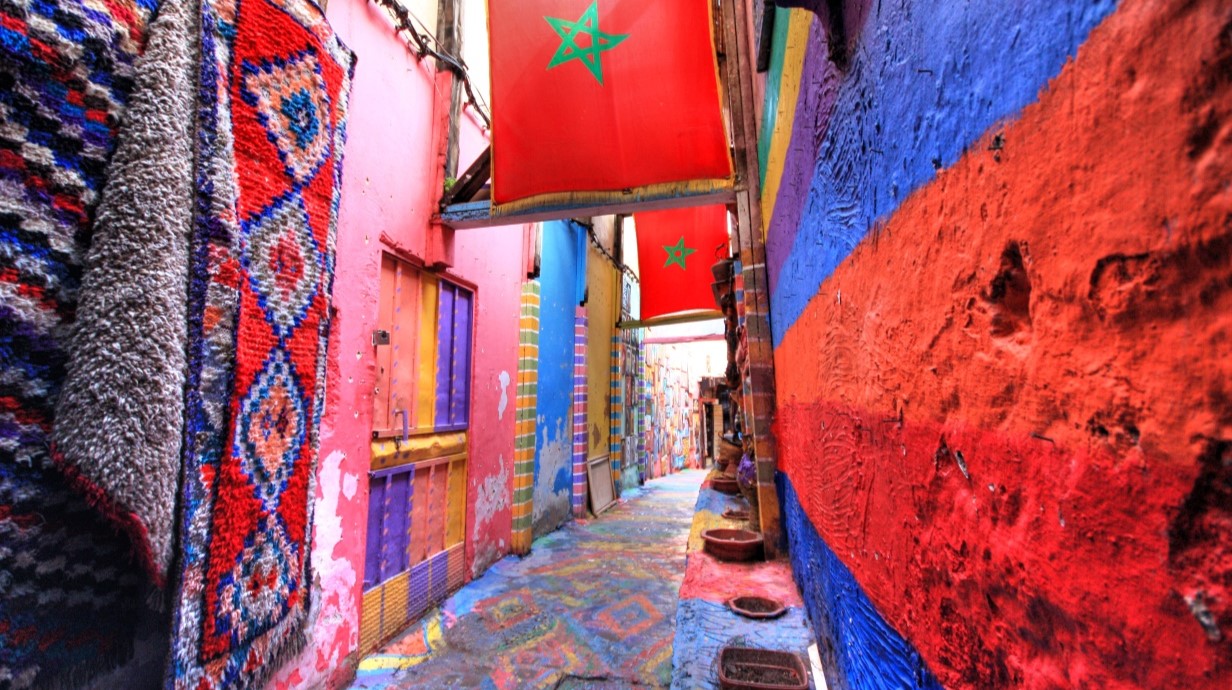
Why Study Arabic?
Arabic (Modern Standard Arabic) is the 6th most spoken language in the world, with 274 speakers. MSA is a large language with many different dialects, and all Arabic speakers grow up speaking a local dialect, such as Egyptian Arabic, the most widely understood Arabic dialects.
Arabic is an official or co-official language in 27 countries and is one of the six official languages of the United Nations. It is the liturgical language for over 2 billion Muslims, and many Muslims learn Arabic for religious study and prayer.
Our Arabic Program
The Department of Modern Languages offers an Arabic major and minor. There is also a separate Arabic Language Flagship Program that has a competitive entry application process.
The study of Arabic provides students with the practical instruction in a second language required to function in a nonnative environment, as well as the cultural awareness and intellectual strategies necessary to successfully navigate a foreign landscape.
UM faculty teach courses in Egyptian, Levantine, and Moroccan Arabic dialects. Besides language and conversation courses, students can take courses in such topics as language and conflict in the Middle East, Arabic literature and linguistics, the Qu'ran, cinema, and media.
-
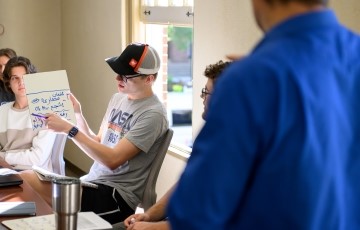
Academic Information
Learn about the Arabic major and minor requirements, including the general education requirements for the B.A. degree. Download a 4-year degree plan for the B.A. in Arabic.
Arabic Curriculum -
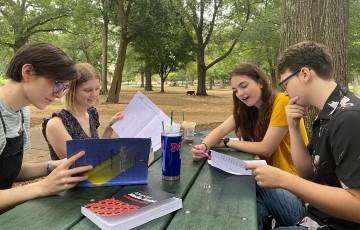
Arabic Language Flagship Program
UM has one of only three Arabic Language Flagship Programs in the nation. It is competitive entry and students have a deeper level of engagement with language learning.
Arabic Language Flagship Program -

Scholarships
Scholarships from the Department of Modern Languages, College of Liberal Arts, and UM Office of Financial Aid help many students study Arabic.
Scholarships
Beyond the Classroom
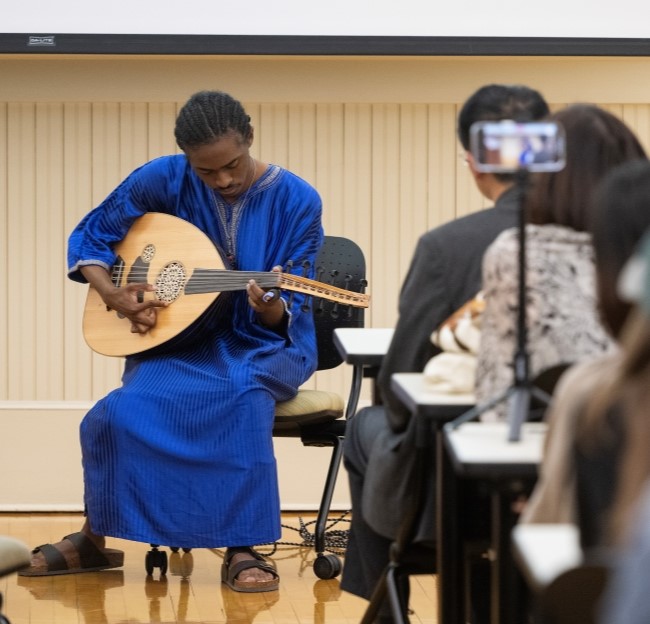
Cultural Engagement
The Arabic program offers weekly opportunities for language and cultural engagement, such as cooking and music activities, calligraphy workshops, movie nights, book club, and more.
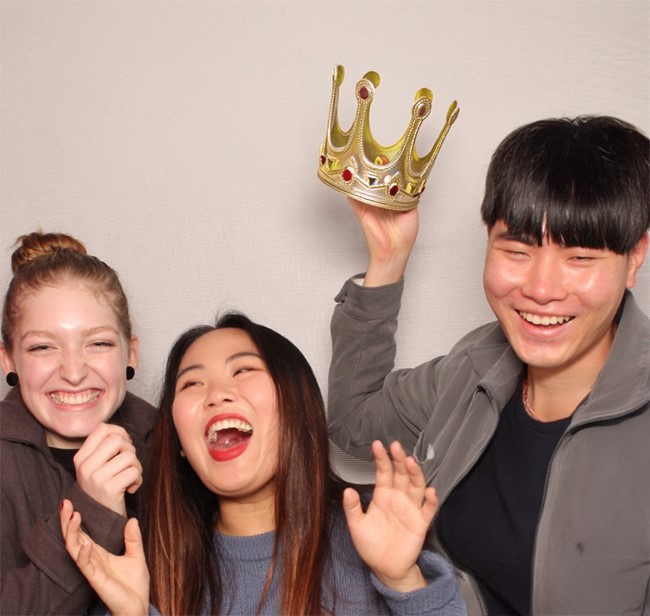
Global Ambassadors
Students have opportunities to interact with students from Chinese-speaking countries. For example, the Global Ambassadors program connects students from the United States and across the world to spend time each week building friendships across language and culture.
Study Abroad

Importance of Study Abroad
"Studying abroad is a crucial, and mandatory, part of pursuing Arabic proficiency at Ole Miss. I cannot stress enough how much I have learned not only about Arabic and Arab culture, but about myself from studying abroad in the Middle East and North Africa."
Caleb Ray
B.A. in Arabic and International Studies '21
Outstanding Student Awards
Year | Honors Day Arabic Award |
| 2024 | Jacquelyn Stewart-Kuhn |
| 2023 | Emma Jo Lane |
| 2022 | Emma Jo Lane |
| 2021 | Alana Michelle Mitias |
| 2020 | Caleb Keith Ray |
| 2019 | Miller Greene |
| 2018 | |
| 2017 | Caleb Keith Ray |
| 2016 | John William Chappell |
| 2015 | Sailer Elizabeth Perkins |
| 2014 | Muhammad Amirullah Bin Mohamed Aziz |
| 2013 | Orion Wilcox |
| 2012 | Amina Al Sharif |
| 2011 | Byron Charles Head |
2010 | Alex Key McLelland |
Year | Outstanding Arabic Student Awards |
| 2024 | 100 Level: Olivia Claire Williford 200 Level: William Bittner 300 Level: Gavin Carr 400 Level: Abigail Metcalf 500 Level: Benjamin Newton |
| 2023 | 100 Level: Madison Riley Guiles 200 Level: Audrey Williams 300 Level: Kharley Redmon 400 Level: Taylor Northcutt |
| 2022 | 100 Level: Madelyn Lake 200 Level: Kharley Redmon 300 Level: Benjamin Newton 400 Level: Emily Stewart 500 Level: Emma Lane |
| 2021 | 100 Level: Lila Osman 200 Level: Abigail Metcalf 300 Level: Emma Lane 400 Level: Charlotte Armistead 500 Level: Brantley Damon |
| 2020 | 100 Level: Gracie Bush 200 Level: Taylor Gray Northcutt 300 Level: Caitlyn Nicole Perkins 400 Level: Brantley Morgan Hudnall |
| 2019 | 100 Level: Parker Scott 200 Level: Charlotte Amistead 300 Level: Brantley Hudnall 400 Level: Paul Hunt |
| 2018 | |
| 2017 | |
| 2016 | Farries Abu-Sauod, Matthew Tonos, Nate Williams |
| 2015 | Darby Hennessey, Lureen Al-Ostaz, Andrew Nicholas Czuzak, Henry Stonnington, Sabrina Kosloske, Robyn Christine Sharrar |
| 2014 | Ann Paley, Catherine Abadie, Jane Alexandria Martin, Julia Kathleen Magee, Leigh Anne Zook, Orion Wilcox, Sabrina Kosloske, Sailer Perkins |
| 2013 | Sabrina Ann Kosloske, Mohamed Amir Aziz |
| 2012 | Amirullah Aziz, Chase Pinson, Orion Wilcox |
| 2011 | Alex McLelland, Orion Wilcox |
2010 | William Pinson |
| 2009 | Leah Nodar |

